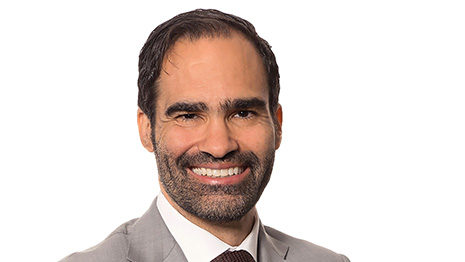By Daniel Langer
The true essence of value in luxury resides not in the tangible but in the intangible.
Years ago, I created the term “extreme value creation” as a practical description of what luxury is all about: The ability of a brand to step out of the conventional and create something of such extreme value for an individual that it becomes – in the perception of that person – extremely desirable.
More than 90 percent of the value of luxury goods is intrinsic. This means that it is intangible, fragile and can evaporate at any moment when a brand does not pay attention.
This intrinsic value is the emotional resonance, the ethos that a luxury brand embodies. Yet, paradoxically, an overwhelming number of luxury brands still grapple with fully embracing and focusing on these intangible assets.
The question then arises: Why is this the case, and what can be done to recalibrate the focus towards where the true value lies?
Under the surface
Firstly, the challenge lies in the tangibility bias. In a world where metrics and quantifiable results often dictate strategies, the allure of focusing on the tangible — be it product features, quality, pricing strategies or distribution channels — is understandably compelling.
However, this focus shifts away from cultivating the deeper emotional connections that underpin the luxury experience. Luxury, in its purest form, is not a transaction but a relationship — one that is built on anticipating an enhanced version of self.
Secondly, there's the misconception of luxury as a static entity. Many brands operate under the notion that once luxury status is achieved, it is inherently self-sustaining.
This is a dangerous presumption. Luxury is dynamic, and its intrinsic value must be continuously nurtured and evolved. Brands that rest on their history, relying solely on their heritage or past achievements, fail to innovate and resonate with newer generations who seek brands that mirror their values and aspirations.
In many of my keynotes over the last year, everywhere in the world, I asked the question, “How many of your clients are Gen Z, hence under 27 at this time?” The answer, typically, is less than 15 percent.
This puts many brands at a strategic disadvantage, as Gen Z is already today responsible for 20 to 30 percent of all luxury sales, depending on the geography. And if a brand under-indexes with the next generation today, tomorrow is not guaranteed.
Moreover, the digital revolution has transformed the luxury landscape.
The democratization of luxury through digital channels, while expanding reach, has also muddied the waters of exclusivity. In the rush to capitalize on online commerce, many luxury brands dilute their intrinsic value by not carefully translating their brand essence into the digital reality.
The subtleties of luxury — its feel, its story, its exclusivity — demand meticulous translation of the story into perceivable elements to maintain their allure online.
Wow factors
So, how should luxury brands pivot to focus more on their intrinsic value?
The answer lies in storytelling. The story of a brand is its most potent tool in conveying intrinsic value, and what I always tell managers of brands is that defining the brand story is the most critical task they can do.
In practice, too little effort and investment are put into optimizing the storytelling. Many brands confuse brand storytelling with creating an advertising campaign.
Ultimately, it is to express a brand through its core values and its emotional markers. When I audit brands, this is the number-one shortcoming: not having clarity on what these are.
In addition, luxury brands must embrace innovation, not just in their offerings, but in how they engage with consumers.
Personalization, experiential retail and leveraging cutting-edge technology can deepen the emotional connection between the brand and its consumers, enhancing the perception of intrinsic value.
If it’s not wow, then it’s not luxury. Extreme value creation has to be nothing less than the exceptional, and the exceptional can never be anything close to normal.
This is where most brands fail. They promise a dream and deliver reality. Luxury needs to be always extreme — extreme value-creating.
Lastly, sustainability and social responsibility are increasingly becoming part of luxury's intrinsic value. Consumers, especially younger ones, are looking for brands that not only offer exclusivity and craftsmanship, but also reflect their ethical values.
By integrating sustainability into their core, luxury brands can add a new dimension to their intrinsic value that resonates with the contemporary consumer.
In conclusion, the vast majority of luxury's value is intrinsic and intangible. Yet many brands still overlook this fundamental truth.
By refocusing on emotional resonance, continuously evolving and adapting to the changing landscape, luxury brands need to ensure that their intrinsic value remains at the forefront of their appeal.
After all, luxury is not merely about owning something rare; it's about the experience, the emotion and the story that comes with it. It’s time to unlock value — extreme value.
Luxury Unfiltered is a weekly column by Daniel Langer. He is the CEO of Équité, a global luxury strategy and brand activation firm. He is recognized as a global top-five luxury key opinion leader. He serves as an executive professor of luxury strategy and pricing at Pepperdine University in Malibu and as a professor of luxury at New York University, New York. Mr. Langer has authored best-selling books on luxury management in English and Chinese, and is a respected global keynote speaker.
Mr. Langer conducts masterclass management training on various luxury topics around the world. As a luxury expert featured on Bloomberg TV, Financial Times, The New York Times, Forbes, The Economist and others, Mr. Langer holds an MBA and a Ph.D. in luxury management, and has received education from Harvard Business School. Follow him on LinkedIn and Instagram.
{"ct":"o6q5fmtS3z\/+4s8boxig5HlqrrgJhSd1ZIZr8zN7MHsqPKyl2PwbLVTBpqZNT16DLN05fkQWPgzr6INo5IEFlxLb9B4ZletffDqNj8az3CVQdUgKWeVq9M4vkrgJ8n3hqRbKth15ROSusP3Js6Exz9SX+6u+UYbR1jl\/MPfoFeZE3yUhU2v9lyx4nwpKqbcXBCI\/+UNo7GIU0dPc\/ACdXTmqimYZqLb8rPvcak+4Cl6a8uXZY5ykbocjib4P2lF6Szbcrr4GkGyVeXAriiqETAB3djwa\/fbcXCQC3U9YzyhFHBskte44bMGyLjlo2Pf\/P25G4MeayV43mXaoKFzXGtqecLfPPAe9gL97AirOpygXrIZDkzTn1mQLyQ2j\/PYcIHtDOOdsQ31e6enQUh6BQ7XLYTKRDg\/cxS7t5oHj4H5YTOaRZLzqPpvW1ruZub36Kdfk3ZwRXayYB1I1d7Ly167O\/N3R\/xlYvhd\/5i9wvyFSObKtLrCI1ue5f6cbV5TWgPxuN7ZhXp0u3DWoFqyPQB1gBPqG5H9Do6LEWYbxanI3Ty\/1DXqxZ5t0HdnHTCt8RNi2iqMZcGeLr6Ua3iRBzVpKMVNSFYdpnYmT7otJtiRH0vWeobO5WoWDDhF\/2v8OTtbtfSOkNkB56QVMklDpAUMh3N+vsCJn7\/2GRRl7mCXCW1khniIiPJDyThXHHcFYZUwwFO7AeRVda1RzBUVRRr1N8o5Xs\/VK+0P+GNW9NTvAQbud5hIicEFxC8VteEOY9tVql89CTkj0I44YLn9jFvoS97oFfRCcSTR9FW7MK77tKskDaXfRvM42QfeOZ1GspLAWfpgQ3w5+3eiE1y2\/rIEc+yixKMHLXKQbGiUirdjKG3a4Bi7QpG4e2nBtB5fH5Qz1Ev+i\/ucCPw4rBUiNOTnD8qedEGA7RdJoBQeKZdtR+V\/vpzhrwplSoN0c+5aIObD\/SDqTfXR8XpLqQX23EBumV0XcA8h93YxoA+LIDeH7WY8SzRSQr4\/tCkMULo5dEeQJ0UfGDcmjJr0iUNw7rDiqDMwTveVr6I7lELFEMnoJdnGE7T59kFmbU80hqfwaHOML5DbqfxDDguOrSsf9CJwrMjVpXxMqOmOao4KowloiQ3CXC9RNOSrTTljvGyfbZQUmwniw9yehQd86jLev9GJgJFitckNEYbhDNCiHORg542qnBTWrcQFwdZz51zgnc9hu4Nab4gd7A2vVNpscC1gceK5znrvZWqAV2rK9ja9KsUWZojarTzDuGyC3U0F\/W62IuMQ6udhVdT2n4u3u7t5ct\/tP4FNvO8wHNKPPdIXNbL\/K1\/pfxAEkwNtz6Ws9hQSQRycB+3gMX9EiycQ74jTY1eOwV2wtDBJNQwLXeaNZ4\/XMPDmGhaidHJ7vL+DVgULyndS8yTlCuXg8biAMCevc4kxkrpi0n0j56RdbjsvVjA5hPW28yF49FXUVQ++UK9NaEfmEfkE7XJ6u3R3Riil9dxiW0+GUl05nJZAus9zBeaXIwOGrVSopDQATxDn6TDd2NE9AcJp4RI5kNsOqaEJMZtOyIhyTPumwgXnHV7XZsWGTagWAuo0q54othCrY3YqvqsLSERzbuvjV9\/cHaFYF\/hwt+MIA6zwbM0ppJl2Usio5Nwy\/XUHHPBWiiqQ61l8UIqfXsV6cohQjTsxUh\/8+0eJoTkJIU41pTlALTd\/O2nTHiYUzfFkfq9AQpKWx6Pv4zNouD4bWO0ABENk+kIe9E\/wqbGH\/yqKPLVHxzivdIJH+zZPuobi8mVapDBejn\/eq\/IrTUYwFIohHi1GuEPM1yxsNSgfhrsZPP0oMC05kBrtEcnephiJ5oatFQjMKdkNxXfCQchrARsC5LnxzoMo1eYywaCu6ffORQ3ZH\/YSceOUE4gXokhYhP9cNQvk4pZNAMrKV7KE0JxedWmH2fKNChRde\/q2RwEeCsjcpb1tkai7g6ubFqnyK7eRJhP1\/6WM6wIL3J6X+vHvYev9TlEr7wZbhof7wQrKE2bkakuuXHy0DPl2fta8bqP5r0bm5z0PhrZaz\/1cTHAfqklgv8qff7Z3Str\/7scmFMseHxLXupzBovBUm5o+f8Q8PtFfGdYzu9WkRJMYUaxtGvu6WRMaNJGfdhrr\/IvyeD\/gRRqN4zAeJGn+u6tye3JmECQIBHbUoU2xzZCG4idcaQX1j7dsfokObGCChzXhpc0AknUZELMNol\/d7xViOLe8o1Zv2wRTQ+uRy71yT4ycb09LdMqBcqc6e\/8PiejjyvQcIXAPs0Seaq8JhxMghkf7sDW23l5xkBZccgN\/Pz2bP9J5Rw+beWfkyMfdLSZYLaB+cKOLfqgwWpUM23EJf2dXmSPaMI4yP+AA\/7SPERFCH1GGu79GBKrQRUnv0BAx\/B+zqNWSyQtLExAvo9xEo2q6J3UtiXPLKDHk7JLa7bbnGN4pMW1pzusmlXThmbJgIH5nzQuEUP+0CQPAPFymK9pIHEIaguVENPZr8oFnfgGNmJlkxOYarxwXEiNyiVfLLJHNRNKWClbHwnfgtDQrP2jCfeD1SLgmixMgCE4x5P7ee+q9uYRfQFD3GigWVLNKQv22OnSHu9b9w7kktd\/SCkyo7u5DGTE2GNvUG0FGSngoaKrMzAON13pYEK3InxpmnQeW8GyIxI7owGtUDPTtbiN1XZFz9bCa+mvrbjMcf\/jOum6npwNv5TZEidQ4sY3swYJ5ao\/291UoeBPNsd+IbOsh53FmVllLse+rplTQXKTfx6XTAP5BRB84+yjn8Bfp\/nf6g0tpWAtXpEqzBxeNx9gMCF11m6sTdm7a7kHgLUAM8k\/5KVqCKk0Rc2sPSCorARUHA3U7D+swpIAE23I27Bx2pNmqqUDwSRfE6FynAmefoliMSr\/rVsiauFdQRpPtdR1JaKK4z7kmUt8WxbTcdSzdMPDj8DnbJnwsKPUZ7aef\/824dbI2naT\/XsDlCCbEmWEpyHzUBImH2CRZeTSbCSO3+Ypy1x9WCvNU179UYbd+wBYebAI0kFKk5aIYZiNjKqUR\/liRzJx6egVJoffLl2CTAYfXoI+ZQXcVoA8OzKwXtY9LGjYP0QwtzeoBjP35hbWyMPRce+U\/hpQwaNl9RH20cBeEMJLp8Xof+kUm26+Ad6EjzImYEBXtpEVDIlsFp3ZcQ0DxJH60wsX11D8klNrFfBePeRb7lrNXXwENkJPdJkohlY3e5wKpC2fZSbpRbcbN+TcHOPzRF87azxU0xU\/n\/t5wIBw2aJl2Ns4Sxan2E6c3DJdWcT2A+72L\/3dHmqoiyuV6Av5am1FdcMOBSXH4ni8Wm6LIiHjcMdgOrY7hQImPa6TK3bF3LS26xhuHZCXeRUuE4WWoutUfxf3eR\/zWZLIP42CDnbBfTx9H9HpijymU4073TweTKchPJ6dR53Yn4UTRKnYk8pOITVaCraApmDnMCjiZNV8gqgRU1maA2dxv6bvWa7mbyNjjt0r6JXGt56XOcISJKDPmlvTvVeUUT24GdTVDlnE6LnRwY59eqn1oIgKCC\/Va9noe8SGiSOGuNYzxCWM2tMImQ9qA7LMtFxJkYKXaXMirQqJQazuELsBxhOS7XD1TMxhRSAXqyMzRKjdQpTyjUq44rRWyzlY3YQqmSlqsu+whFgmY5h2gxSFSrvGU87WM+T0NhrtDHJEBxi89+vLytAA8ggpD5K\/Rcey7FMAGOfyfTkD\/VLYc2mcTA0Dbmq7iFW07DDuYye3MkEYTaQ3wMZ5nrRsbTCFladY\/0iz0WqOnTg477\/dIRcJOAhvd4y4diVziRtBR3u9AEtxwksD3COJTYj4Fz8Rh5220t0xjMUKm2keDRjFg7X\/sXNFuDidEJ61ONUXUsAmhjrhjaxXS6PmM3oLRAQ\/5VDQEcynse5ThinrCdsxW94vJnODRtoYV6P94C+S03\/Wt3k9UQu5IqQUGauvDy6XBghTHCHh6U+dLpTQmsMLFgIWTT2ATqbbDZ7QkCafJ0k2VYiaHXI7KLp6ra\/4eNbfAQ9qw8jkNguG\/G1GP4A2P2+e\/xoFxSKBAK+z51LxnxWAm5kg2yifY48u\/oDtWdeLVgQVGUAEKIwYG3cEDwuLTYBsaqtypW1ZvX7EqLmLj1r5GX5l5fluPWsPKGuoa9bOe6kaBQHRaDgID7oDOC9LpYJVFEDIz7dlPmdC3PqUOcT07oS5KtwKaM3l6CYfEqy4BQ9MKyhZi1L+n59KyvSSN9w3369VUNKkEvKX4hxK6ZiwsbrAZX+khWTwZ1dxmRRaOLEtQwqbA7z\/gbtJR2ud0BebcrATnJ6+\/d04fY+9tly\/R3S7l4N60Ip94k7AFxdzu6m\/06GQSw0aZXfwJU40fsxHLNgrWzdgl\/1kvB7yTDTTcql\/Ng2TR9HCWhjkTAk9xLOMxNeY+OrM0j862VFEfDhrRDZrF\/dqw22MhlUU75XkJ\/s22GotSX8kOxy0sNkEWZCFqMQUdCWgCajE7vk8jhr2EhzkM09\/32cJX5egT+bLaPQ3IU9iFdJj5Yz4AL7\/h\/RYs1nRuvGsRAHkB1oSZ7EplwB8Gj1RdDOnK3GUnBPLrkYdKJxY0zasqKaGpXPR0HDXyvAm+abE1mUNwtwkIFZYSrdhNQTCBghL5dpQbd6v2wuB1JpjdB+2PDqz\/5rznVLJFbB0SBoOj9MMJPLYpC+R1h2U47WfcsoJLU58fraB3A3kv0OsopTR\/jHpAptOfSUGVBlGY2knu1uLDj\/beQmJGXmsOdvEPvf0BTR2qMS6dU\/31yn0dpfvq1090Ez51bEtdomcP6YDCOQ+wXUWud+3rfXvDvCQsYSuNRbT7\/yMw6rv0U+zlKJISIczP7GoUFuBuHONKKgtkde7bb2uR+cdgDs\/uxEWnMS7z7vMild5iiuUQOVmeZNdx\/9\/Nu73ZO9Ys4QgIiUPDu\/F7hgxVFyQi6jbz2F8n51ccg75bEiizNll1k0RI5sago1AMpPE25zY8Uiw+XxoGqrAb9ZHzk17zf\/IrXC3m7tAeUPRN6d4gTlLL5Q2Koraz39mMDocFy4g17Vufi2epSTryuVVrskqK\/BLUFQzoKLOVvc\/TCUNCnm8VVy4Ii2QPbhrOIFta+nmsaaNCgnJz\/2MiKSohuZ2SVZWeRb\/tDag1X6zEtlnOtHcnfLXPVT7VkgiwNizR08qKRsdUjFJSuqkxGdmbTekbuTpzj3i5OCmYnD4\/scthHKCwO4z+9KxVMEdF3oFJW5Sd9UZwhDoCrO8EAr164cNq8YZkdhGnIoSWxjkiXJXTV2nkJjkTtpx3eW\/MM5jve4PyEnvRy3m0BbydshDkrntpGK1EvPMUXMEUq4EAMhjlIQhgT8OiPA7918+wOEqaNgEhOuQjYuOZmJ5p2K+DU4gJydaP46ymCJVclV+Zgexk7EFeEUeK\/NOJPANl8Wcq+UWqOhHhfA60y4hvJ3ONAi9Z\/ka3h7yp+637CmV+nJ9dISnZ9bBXPMuhFYnEvDfN0XPuDM9SK2jufMWPksWPbIemCM74YWTgjP5fadTvrHNFA5hw5ByHC6CsIrjLhS7oD\/xWAQLVCEzMzeNKpa0\/LOxz3\/Kjj4XUpRUWynkx\/PPYrk7\/CGnXQwMSR+Yr+oejAARk5augdeC3p\/6OK+LL06Erp8GV9HAqZ3lrH5x7V0t246Ou3rKHgp5o97TnxdJeaudmmBdqmL9afoQHwpcqiDXyRgLHlr\/OLZ9Vi93AxPJKYntOA9BoYNG5nXIxpP+mxLRghfKQl4cxDvWewyMRqUHUEEfzGVC74Wsr4j8kFxXiJK23QAWfPHnp6oSrqWN94wbOiY\/BGTF28AtEBhE57Zgh8ARrG+zftCQTGfZUpeoRkeofd+4tQirDcbqVPRvUmLgxdja22yX7BnXk1aCBxzhmHbDlX\/Y1NggiYXDCWDtj21NVkvvl1uKXgWYmvjME21C2iR1Uv4+35YqoSnZNkMV6yCUNQ1iRDmskJG+ZRU+AFvWIlNxOHWMkASHiTUbiRHTzKfG8Ac83QNg0+MS976tbxNMsrHTsF2VMg2MlRfIFPVVywQ+Vv4EOzpUUDJg0+jIn5qGOky2k\/07ykakynwZfnbjPMIPu2Afy5Kn5OfpuQn60H7msU2KvZUqlUppLhbo5zODPsaltMUS2p3YEpPq3MNOSDuzp1\/y5HGOwcUoU\/q8d0MxfLLGkzs0rNTciHgtQcZt7\/Jzur2jqFLzf4wiGcS8BKtaeV2Cr+Oc97ThzZj0RP549X0DxROvHAiqtkCspRl6CVnsiNMK1cZFrHAGDgJAGCQibbC0nzJ8VOO26fvB4OjQ4Xutu\/bGW3MDMXM4M+0qg8V4PM+UMTpN8T4l7LhlqVYjQN0P6ly5vRKAn7cHZkqn0fwZhO2ah6Iyk8LjBmlAJZ+M+7fJPFIxDwRoBIgd6EthI3+EVfOP\/1nGfey6jNA86OV5tnV5jHravWYHeZIczsoVH4U65MUU7udFdw\/IMKGnKlGLl3MbKRKregsVX5dvY9xCYV6v0qVjMjuRvZMLg37CyP3Q9vybz42lJjvOQ2VFinzldPHbpU4NnUw7j5wysvgl6b6wfozSOBmzljks0q8wP+pEpAEMdTTFEX61VPyxOB0P41mGn2W1XkNDpzy5vc49r3NGQOppj9zlyaDDuFgoXBbny9psUOV4Xs1uQocWV7YtdoCw0xPt5KHCrkHyFCyuMWQhIzFD0kmwXbtheYesCMa2U2LVpRhuu7nuKDtHkEqyMCChiOasUNCjxeIlTtJA230Ytk1B1ZIcYvXxxkv28QwBwgqsC75xtRjy844ivWxR8RzPOk+cCqoSAdWQQ9eNAR++UXlkLHxQApDr729XiAkAuvP6UMnGZa4kduzNLEeSeOFMB7pSYP6TD8gWnudZWwouyGNB65c4EGrElHew8K9IW0mRaKFLssF83jU5pOH4QTJVK7dUoB7g2xWjiDkmfWfhiVISXj8YMsEgrFVb6e8iIj1\/NhTrxeoYDInri5SnQDurtZpxkc\/60iRAXjuqTdffV1PGQtW9kKuDxD8gdpR1dmCKpWaHQelwTQBni3PrLfmWooJa0NzH0pLM9Ljzuj+6NyqRsI0IxLyuV1hgPzJsG8u7IOc3wVaOkXpoo63BKGhRS0KbsrmtMQNqPaXz7EP4Umi9qWI1Q\/+h\/NiCwQ1vfTRpwKHQENlwiInyU0X6d1+M6A2OWbd3xXiuVEBOqD0IiVRTr2Z4jyRrMK8Q+EZJEXZ9Eps9YZmRJbIRu\/93U8et3x86VbA8nN+deUjighAphq8X0eXWriqxZ3RP5LUP1XzHMTkT8e1ScCOX0q70YK3TLV3jMl1iKovQwXlUtmvhVKKCbKIypnojIzrzMZej6bfpuhOLGoanmaxKokH23mVHwMk07PItZC1QeWkJf+R04fcnR\/tjH9W4NLnbpuyQa1m+INnLNaiexSrL8+s6hsV+\/1IIkWsKA4TJ6GKpCufEwR5zr4LpHNKQJGNsVRr14\/bGmmCs6NnNSx\/pezJjbk7JWns6fhiE3nOOK61XC9qOX6ql4jJE+rMTD3i8m2s3MQmywc2CT0caEiuweYmoHQB3OK4BFgp1Wz\/6TEfjdYkIL9kBWRqmAsGLV\/Dc9rY4ODmOKJAZJyGk3xTvnqAxUyATxZIYWvkuputm7BrFd27eAazLz0RKlXxZaiCzzOXqZSkDFTfkLFviU5ZNtI\/jVRZv6UHwtrxgCix+oKhh9vIAxG\/0QqMPCh9cfDQQLMRHZlXxiPB4xC+JMy5kVE0XmwLpK5A1EN55W30MIvW8CvHDHDOTY6QGQDaKVnp\/7D3bart9XcD\/1tfDePUqaFmMReRkOlJIpC\/aL3QHk0t1iPfE9zP1NWcm7HeDBvDbWzlq6DV6udpuTzALOSvFh3s5260DKY1+In85\/l0fxLMvyY95RC1q3rbwi4Z3mp\/irn04mjZBzbzCrSbsDvWBWbZ4v56B+\/gRxXsWoe7EuY04TA6t9Zo1hgI3EjkD1oFpKD5ADb8jbgSci8B\/2euD4bQbXQNGYckA5BxuHAt9LQnxOofblCfYC+YlyfbFJGzPMwSIbxNFvWJVWM+WZ2JqD81\/DdQ6axlsVPclU6qxy7p403zu\/k+xiyN1feoahAmnXXJ8u3gW\/Day0qmvV3e3EG7mm6OJEXL6AqqliJQGc1L3aMuKqakDL3w4eTL41ir4awNmjyZvobF5gEKUNkkd7k7+XPq46aW4r9aO071SQnlqj6DsP\/C9hFA3E6wJ0U847kUq71IchdZFrw29IWrUSnjyZ\/8jVs3jRcoA532TRYyscNofmgJYQ4wrkftUfgljOEIm1vy7ki44zg9zN0EFmGrmDf1mKDC0pOXYeEzJcIgGA7W6+O7Lea+CsKVJ9xrDmhvphif2+m1QewmgwLWXSpHVVUbFrn8qdv37KirNATqR6aW+SnC8pyAxJ+D9t6WfFB\/SGByrdi8SMiR8vHKWGBWOthk1FBZt7Rq1j8uTcdxesKZLZNOA5GtveZo50pzjIotbckz01Hjr1Ba5aOx7x5MZHn1FIOqjZyyo8YGIGehVwbh6r30Ba3gn7NavkbCwyhJEXS168qYsBtexSxGHPXTWu3iEOEMqV\/Y8yyGqarNl\/EGvknpAkddGKCuzmA2YH27pByDT23JBA\/S2IrU3dO3W9JJrcRWRMatuO6UopphxO650E8keRdJ8CmqSTJt1XsDU9X58zc6ceu81a9W42IAMBOfA5IhenqSnPwThru5EP9lwS5G2JxjEGl24QeiAZfagqUqRGMR5A2NUSitBP7XEzVpSU8ncCagtPuR5q27fAqB5ccMzGVdlGHHX0dB3EWHUOvB\/zkdNumhCM\/DPc4sBnUO58YRNuVFyZ3g7LK1FnQtE5jk3TzjpQ9pf4SMaZGdrn0+pT8Ke49i\/aBLZDRCMvesTyj0yLeRSL7mSRRQWsKISL9NXBz+suhsyqL4kJh0IBg9VWrCHbPOVHyKgyg296goYa1Xl+6WROhdX4p1Tm2yBNJ8LRyfs3LiFPhCcyyoHretb6xus3BaI1ceFS4RS\/ImmPxBYrq3ru9wwHKUBUAOVlUpTlmNBASxOl0QjvceyBtzFscx4zeutxHlTCabjlbVnTvR7MYlQRxwhI4b4K\/VOtRL9amqMo8gb1M4mgeg+3D\/0noQNtAEOsAelda4a1L2G\/m3QtljdtOveWHvxfuQ\/63MnHfXBgHJqbRJN9Vw\/BDSEphZ0SyPRGjkRivy+gHCbSNXVr2FDriUlYHelhkifJE3Led8uWMAOgqfxe8JoLJhZX2OKb\/qQ5pPBAWHyiIo267BD4awT6MP7HqG+7rb60Wk5jYBAS+6VTnf859jD49XH9+u2Naze+IyORNnsQUPc91F1GK36U=","iv":"ea878a6a527f4a3aac0ee93f9194a19e","s":"e8cd59c8e493ae7e"}

 Daniel Langer is the founder and CEO of consulting firm Équité.
Daniel Langer is the founder and CEO of consulting firm Équité.